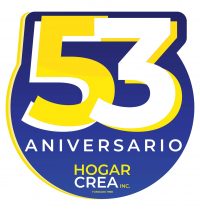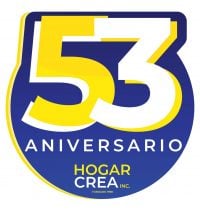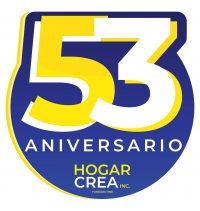
APS Clinics of Puerto Rico
Drug Rehab Center in Rio Grande, Puerto Rico
- Mental Health
- Eating Disorder
- Dual Diagnosis
APS Clinics of Puerto Rico is a Joint Commission accredited facility that provides evidence-based treatments such as Cognitive Behavioral Therapy, Medication Assisted Treatments, and Trauma-Informed Care, as well as holistic services for individuals with substance use disorders and co-occurring mental health issues.
About This Puerto Rico Facility
APS Clinics of Puerto Rico in Rio Grande, Puerto Rico is a full-service recovery facility dedicated to providing clients with the best evidence-based treatments for addiction and mental health challenges. With a team of experienced clinicians, this facility offers personalized, compassionate, and individualized care for individuals with substance use disorders and co-occurring mental health issues. APS Clinics of Puerto Rico provide a full continuum of clinical programming, including specialty Intensive Outpatient Programs (IOPs), Partial Hospitalization Programs (PHPs), and Medical Detoxification, as well as individual and group therapies.
At APS Clinics of Puerto Rico, clients can receive a variety of evidence-based treatments such as Cognitive Behavioral Therapy (CBT), Dialectical Behavioral Therapy (DBT), Medication Assisted Treatments (MAT), Trauma-Informed Care, and Family Therapy. They also offer holistic services such as yoga, mindfulness, and recreational therapies. In addition, APS Clinics of Puerto Rico focuses on helping clients build on their strengths to restore health, improve self-esteem, and develop the skills needed to maintain long-term sobriety.
APS Clinics of Puerto Rico is a Joint Commission accredited facility and is licensed by the Puerto Rico Department of Health to provide addiction treatment services. In addition, the facility has been honored with the American Board of Addiction Medicine (ABAM) Certificate of Excellence for their commitment to providing the highest quality of care for individuals with substance use disorders. Furthermore, their team of nurses, counselors, and clinicians are certified in addiction-focused treatment and boast years of experience in the field.
Genders
Ages
Modality
Additional
Conditions and Issues Treated
Dual Diagnosis refers to someone who is both dealing with addiction and another mental health issue.
There are different kinds of Dual Diagnosis: A person who simultaneously experiences both a mental illness and an addiction disorder. Or, a person who experiences one or more coexisting (simultaneous) mental health conditions in addition to a primary substance use disorder.
Some conditions that commonly co-occur with addiction include:
- Personality Disorders (Borderline, Narcissistic)
- Mood Disorders (Bipolar Disorder, Depression, Anxiety Disorder)
- PTSD (Post Traumatic Stress Disorder), OCD (Obsessive Compulsive Disorder), ADHD (Attention Deficit Hyperactivity Disorder)
- Schizophrenia, Psychosis, Hallucinations, Delusions
Levels of Care Offered at APS Clinics of Puerto Rico
This center offers a variety of custom treatment tailored to individual recovery. Currently available are Dual-Diagnosis, Outpatient, with additional therapies available as listed below.
Outpatient treatment programs provide drug and alcohol addiction treatment through individual sessions with a counselor, group therapy, 12-step meetings, and other activities to help individuals gain sober living skills. Most programs are designed for those individuals who have completed a medically supervised detoxification program and provide opportunities for clients to begin the process of early recovery.
Outpatient programs also offer a level of medical support as needed and psychological backing through therapy. Clients are encouraged to live at home, though there may be some flexibility regarding this requirement based on the circumstances and needs of each patient.
Outpatient treatment is perhaps the most common type of dual diagnosis program available. It does not pose a significant financial burden on patients. However, it is essential to note that outpatient treatment does not provide the support and supervision given in residential programs. Some addicts may need this level of support to maintain their sobriety.
Therapies & Programs
Therapy sessions focused on the individual addict can provide much-needed guidance as they work toward overcoming their addiction. These types of sessions typically involve guidance from a therapist, who will help addicts identify and process their feelings and cravings.
During these sessions, addicts may develop plans for coping with the triggers that typically lead to relapse and learn how to avoid those triggers during their recovery process.
If you are looking for drug recovery, couples therapy can be a great option. This type of therapy can help rebuild trust and joy in relationships that may have been damaged by addiction. It can also help reduce the dysfunctional behavior in a relationship that may trigger addiction. A patient’s partner will be involved in the process. They can also benefit from therapy, especially if they are trying to live with an addict.
The main goal of family therapy for drug addiction is to create an environment where communication can occur without judgment, hostility, or blame that often occurs within a family.
Family therapy is a type of group problem-solving that aims to improve communication and relationships between the patient, their family, and sometimes friends. The therapist is with the family as they learn to communicate with each other differently, especially with the addict when s/he is using.
The family can learn to reduce their enabling behavior or rally together and support each other during tough times. The patient also learns how to deal with their addiction and maintain sobriety while interacting with the family.
Different types of addiction treatment services are available. Within this article, group therapy is of interest due to its high success rate compared to individual therapy. Group therapy settings are beneficial because they allow recovering addicts to build a strong support network.
Benefits of group therapy are:
- Reduces feelings of isolation
- Immediate access to social support in the form of fellow addicts in recovery
- Lowers risk of relapse
- Increases rate of sobriety
- Builds coping skills that can be applied to everyday life
Trauma Therapy is a form of therapy that involves working with a patient to help them process and understand the past trauma(s) in their life. The idea behind it is that while some people can experience traumatic events and not have lasting psychiatric symptoms, many others will. In these cases, memories of the event get hidden from consciousness but continue to influence how the person processes and copes with things in their life. They may avoid situations that resemble what happened or become suddenly angry or irritated to a situation that reminds them of a past event.
With the help of a therapist, people can go back over memories and experiences. This helps them understand why they are having problems coping with certain situations and how they can change how they think and react to things. This therapy is typically done using techniques such as visualization, discussion, and writing down thoughts and feelings.
Trauma therapists will work with clients to help them understand their past and present relationships. Many times, patients may believe that something is inherently wrong with them or that they are unworthy of love. A therapist aims to correct these negative feelings and behaviors by helping the person realize that their actions do not reflect who they truly are.
One of the main goals of trauma therapy is to help clients express their emotions and talk about what they are feeling. This benefits both to increase awareness of how certain events have impacted them in the past and enables patients to realize that they can make changes in their lives.
Payment Options Accepted
For specific insurance or payment methods please contact us.
Is your insurance accepted?
Ask an expert, call (888) 674-0062
Additional Details
Specifics, location, and helpful extra information.
Rio Grande, Puerto Rico 745 Phone Number(787) 641-9133 Meta DetailsUpdated November 25, 2023
Staff Verified
Patient Reviews
There are no reviews yet. Be the first one to write one.
Rio Grande, Puerto Rico Addiction Information
Treatment in Nearby Cities
- Toa Alta, PR (27.0 mi.)
- Utuado, PR (57.2 mi.)
- Guanica, PR (75.8 mi.)
- San Juan, PR (18.6 mi.)
- Juana Diaz, PR (49.4 mi.)
Centers near APS Clinics of Puerto Rico



The facility name, logo and brand are the property and registered trademarks of APS Clinics of Puerto Rico, and are being used for identification and informational purposes only. Use of these names, logos and brands shall not imply endorsement. RehabNow.org is not affiliated with or sponsored by APS Clinics of Puerto Rico.

